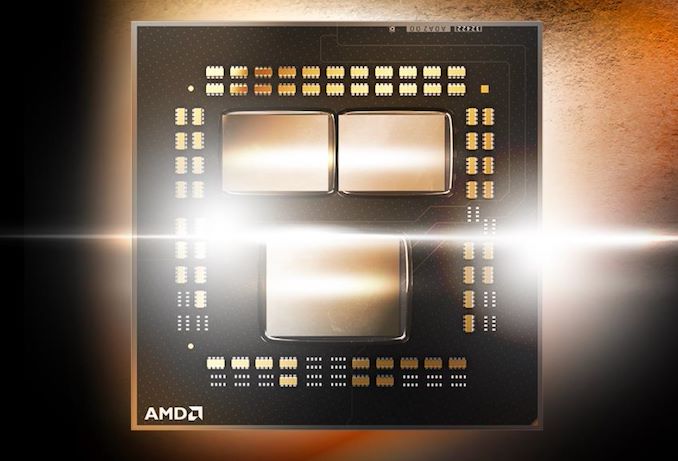During their opening keynote at Computex 2024, AMD announced their intention to launch a pair of new Ryzen 5000 processors for their legacy AM4 platform. The new chips, both getting the XT suffix, will be the Ryzen 9 5900XT, a 16 core Zen 3 part, while the Ryzen 7 5800XT will be an 8 core Zen 3.
The new chips are intended to underscore AMD’s ongoing commitment to supporting their consumer platforms over several years. And while the specification changes are rather minor overall – the Zen 3 CPU architecture has long since been taken as far as it can reasonable go – it does give AMD a chance to refresh the platform by slinging hardware at new price points. AMD did something very similar for the Ryzen 3000 generation with the late-model Ryzen 3000 XT chips.
| AMD Ryzen 5000XT Series Processors (Zen 3) |
||||||
| AnandTech | Cores / Threads |
Base Freq |
Turbo Freq |
L2 Cache |
L3 Cache |
TDP |
| Ryzen 9 5950X | 16C / 32T | 3.4 GHz | 4.9 GHz | 8 MB | 64 MB | 105 W |
| Ryzen 9 5900XT | 16C / 32T | 3.3 GHz | 4.8 GHz | 8 MB | 64 MB | 105 W |
| Ryzen 9 5900X | 12C / 24T | 3.7 GHz | 4.8 GHz | 6 MB | 64 MB | 105 W |
| Ryzen 7 5800XT | 8C / 16T | 3.8 GHz | 4.8 GHz | 4 MB | 32 MB | 105 W |
| Ryzen 7 5800X | 8C / 16T | 3.8 GHz | 4.7 GHz | 4 MB | 32 MB | 105 W |
We’ve dedicated many column inches covering Zen 3 and the Ryzen 5000 series since they launched in late 2020, so there isn’t anything new to add here. Zen 3 is no longer AMD’s latest and greatest, but the platform as a whole is quite cheap to produce, making it a viable budget offering for new builds, or offering one last upgrade for old builds.
The Ryzen 9 5900XT is a 16 core part, and isn’t to be confused with the Ryzen 9 5900X, which is a 12 core part. It ships with a peak turbo clockspeed of 4.8GHz, 100 MHz lower than the top-tier Ryzen 9 5950X. This makes it’s XT designation somewhat of a misnomer compared to previous generations of XT chips, although it’s clear that AMD has boxed themselves into a corner with their naming scheme, as they both need a way to designate that this is a new chip, and yet still place it below the 5950X.
Looking at the second chip, we have the Ryzen 7 5800XT. This is an 8 core part that does improve on its predecessor, offering a 4.8GHz max turbo clock that is 100MHz higher than the Ryzen 7 5800X’s. Both chips otherwise share the same characteristics, including 6 MB of L2 cache and 32 MB of L3 cache, and all four of the chips – including the two new XT series and the corresponding X series chips – all come with a 105 Watt TDP.
In terms of motherboard compatibility, all of the AM4 motherboards that currently support the Ryzen 5000 series are also compatible with the Ryzen 5000XT series, although users are likely to need to perform a firmware update to ensure maximum compatibility; they are the same chips, but the microcodes are likely different.
AMD has provided some gaming performance figures comparing the Ryzen 9 5900XT to Intel’s 13th Gen Core i7-13700K. It does offer very modest yet marginal gains in games by up to 4%; it’s not mind-blowing, but the price could be the decisive factor here.
Regarding price, AMD hasn’t disclosed anything official yet ahead of the expected launch of the Ryzen 5000XT series chips in July. It’s hard to make a case for a pair of chips to be considered a fully-fledged series, but it does open up the doors for AMD to perhaps launch more 5000XT series chips in the future.



